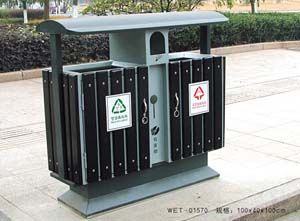What is the trash theory?
Simply put, the model believes that when employees face a decision, they will constantly ask questions and give solutions. These programs have actually been thrown into the trash, and only a handful of them can be part of the final decision.
The trash can theory comes from the interesting practice in urban management. This practice proves that in a flexible and guided way, people can get psychological satisfaction and pleasure in following the norms and maintaining the order. The effect is much better than the punishment. It will not cause everyone's resistance to "management".
The basis of the trash can theory is Professor Marty's observation of organizational behavior. He found that people working in companies tend to have a preference for certain patterns of behavior. These patterns become a “baby child†when they become a solution to their personal choice. As a conclusion, the model points out that no matter when and where the problem occurs, people will use this as an opportunity to implement the solutions they have chosen. This will affect the decision-making process and the final result.
Another feature of the model is that the company is regarded as a set of competitive countermeasures, waiting for the emergence of the problem at any time. Therefore, under the trash can model, the decision can be regarded as a specific combination of problems, countermeasures, and decision makers' choices. In this sense, the final decision is only a byproduct of the gold rushing process that takes place inside the trash can.
In short, the key to applying this approach in human resource management lies in “unblocking and combiningâ€. When employees have behaviors that affect performance, they often think about problems from the perspective of employees and design “trash cans†to attract them to actively discard such things. The behavior of "junk".

Simply put, the model believes that when employees face a decision, they will constantly ask questions and give solutions. These programs have actually been thrown into the trash, and only a handful of them can be part of the final decision.
The trash can theory comes from the interesting practice in urban management. This practice proves that in a flexible and guided way, people can get psychological satisfaction and pleasure in following the norms and maintaining the order. The effect is much better than the punishment. It will not cause everyone's resistance to "management".
The basis of the trash can theory is Professor Marty's observation of organizational behavior. He found that people working in companies tend to have a preference for certain patterns of behavior. These patterns become a “baby child†when they become a solution to their personal choice. As a conclusion, the model points out that no matter when and where the problem occurs, people will use this as an opportunity to implement the solutions they have chosen. This will affect the decision-making process and the final result.
Another feature of the model is that the company is regarded as a set of competitive countermeasures, waiting for the emergence of the problem at any time. Therefore, under the trash can model, the decision can be regarded as a specific combination of problems, countermeasures, and decision makers' choices. In this sense, the final decision is only a byproduct of the gold rushing process that takes place inside the trash can.
In short, the key to applying this approach in human resource management lies in “unblocking and combiningâ€. When employees have behaviors that affect performance, they often think about problems from the perspective of employees and design “trash cans†to attract them to actively discard such things. The behavior of "junk".

Several models of trimmers are available for trimming different kinds of brushes. They can be used to trim round brushes like toilet brushes, bottle wash brushes, dishwashing brushes or other spherical or semi-spherical brushes, or to trim hair brushes (curved or flat brushes), and to trim toothbrushes or similar small brushes.
Brush Trimmer, Brush Trimming, Brush Trimming Device, Brush Trimming Equipment, Brush Trimming Tool
Yangzhou Haixing CNC Brush Machine Co., Ltd. , http://www.brushmachine.nl